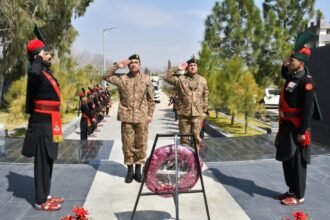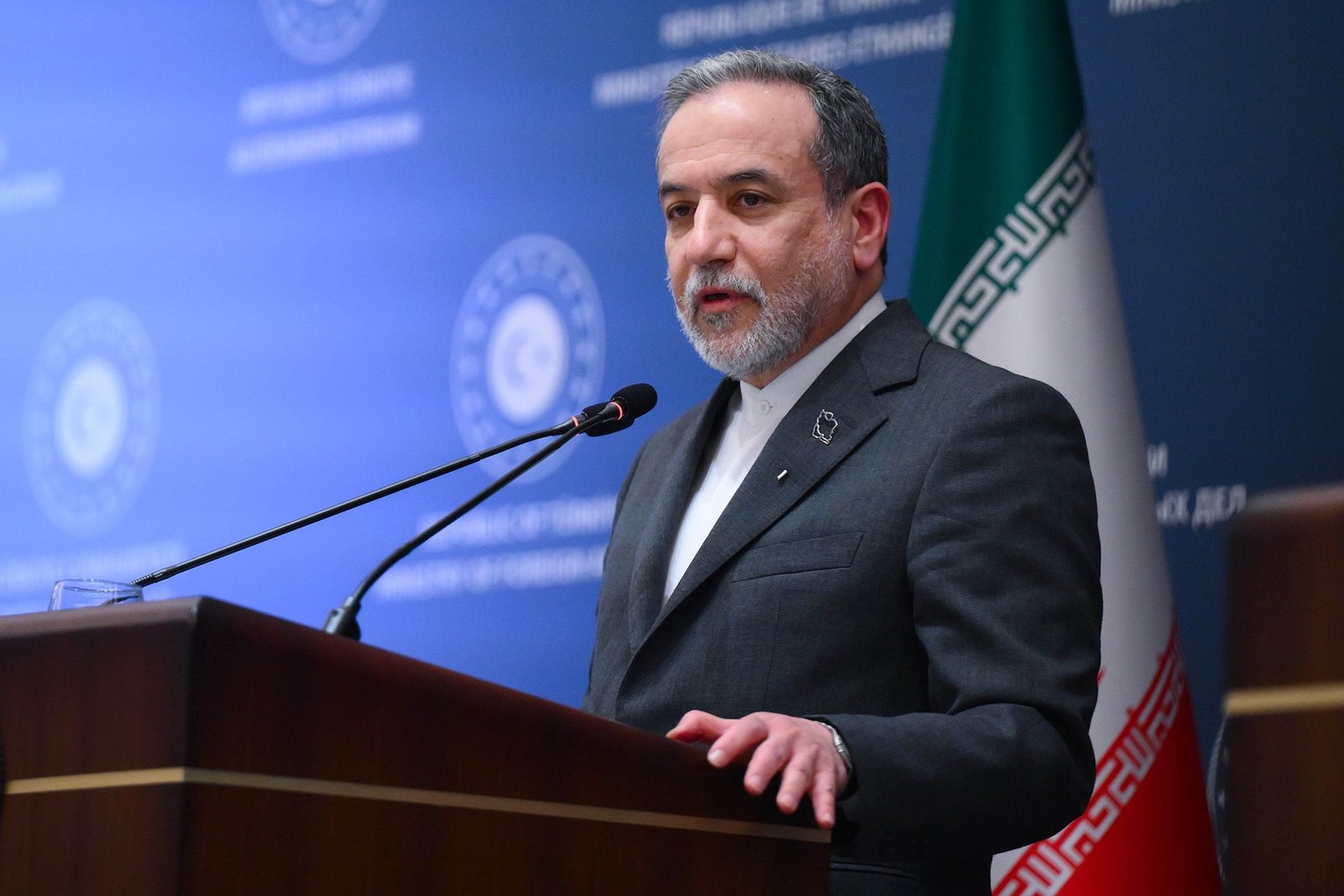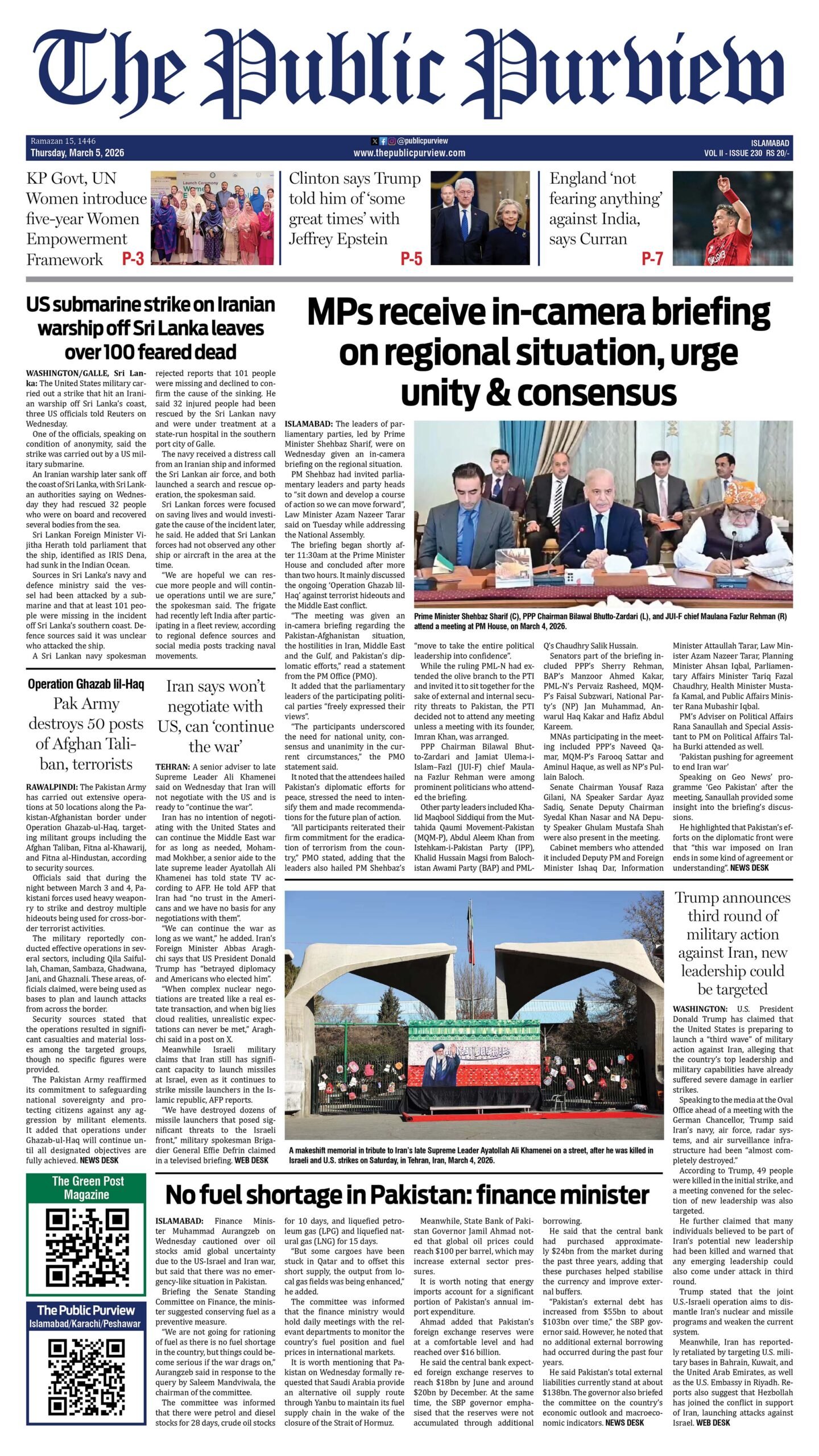
By: Abid Ali Khan
Senior Journalist & Columnist
The picturesque valleys and glacial streams of Swat promised a refreshing escape, but for an entire family from Sialkot, the journey turned into an unthinkable tragedy. What began as a joyful, memory-making trip ended in horror when eighteen (18) members of the family were swept away by the ferocious currents of the Swat River. In one devastating moment, vibrant lives were claimed by nature — and the state watched in silence.
Despite the public outcry and media coverage, the real question remains unanswered:
Why, after several hours stranded on a high rock in the middle of the river, did no rescue team, helicopter, or emergency response unit reach the victims?
Indeed, the family’s lack of caution and adventurous risk-taking near dangerous waters cannot be denied. But the very purpose of a state and its institutions is to protect lives, especially during emergencies.
This was not a remote village accident. It happened in Swat — one of Pakistan’s most prominent and profitable tourist destinations, where millions are generated in taxes and hospitality revenue each year. Yet no rescue system was in place.
No functional warning mechanism.
No emergency contingency plan.
This isn’t negligence — it’s criminal apathy.
Unfortunately, the pattern is not limited to Swat. Similar tragedies have occurred in Tarbela, Ghazi Barotha, the Indus River, Naran, and Kaghan — repeatedly.
Particularly in the Ghazi area, numerous drowning incidents in the Indus and Barotha Canal have been reported, where locals are often forced to search for bodies for days, even weeks, without any institutional support. Neither the Tarbela Dam administration, nor the Haripur district government, nor elected representatives have ever taken meaningful action.
Rescue 1122 was inaugurated in the region — yet there is no office, no staff, no vehicles. Only paperwork, no real-world results.
In stark contrast, in countries like Europe, Turkey, and even the Middle East, helicopters are dispatched to rescue stranded animals.
In Pakistan, even 18 human lives weren’t worth deploying a single boat.
Why?
Are helicopters in our country solely reserved for ministers, bureaucrats, and political elites?
Have ordinary citizens become so dispensable?
Is Pakistan only for VIPs?
While the government promotes Pakistan’s tourism potential globally, incidents like this shake international confidence and severely damage the nation’s reputation.
If tourism is to be taken seriously as an industry, we must go beyond roads and hotels. We must invest in:
A comprehensive rescue and emergency response infrastructure
Trained personnel at every major tourist destination
Dedicated helicopters and advanced rescue equipment
A functional, transparent, and accountable Rescue 1122 network
Real-time warning systems, signboards, and guides for tourists
A Prayer for the Martyrs
We pray that Almighty Allah grants the highest ranks in Paradise to the victims of this heartbreaking Swat tragedy, bestows patience and strength upon their grieving families, and protects our nation from such devastating incidents in the future. Ameen.
A Wake-Up Call for the Government and Institutions
This column is not just a report — it is a plea, a warning, and a national demand.
We call upon the federal and provincial governments, NDMA, PDMA, Rescue 1122, and district administrations to take immediate action:
Deploy fully-equipped rescue units across all sensitive and tourist-heavy regions
Repurpose helicopter services for public emergencies, not just VVIP movement
Make Rescue 1122 operationally effective and publicly accountable
Hold district authorities responsible through annual performance evaluations for protecting lives and property
This is the time to wake up.
Otherwise, tomorrow, another family seeking joy might be swallowed by death — while the state once again watches in silent indifference.







 Today's E-Paper
Today's E-Paper